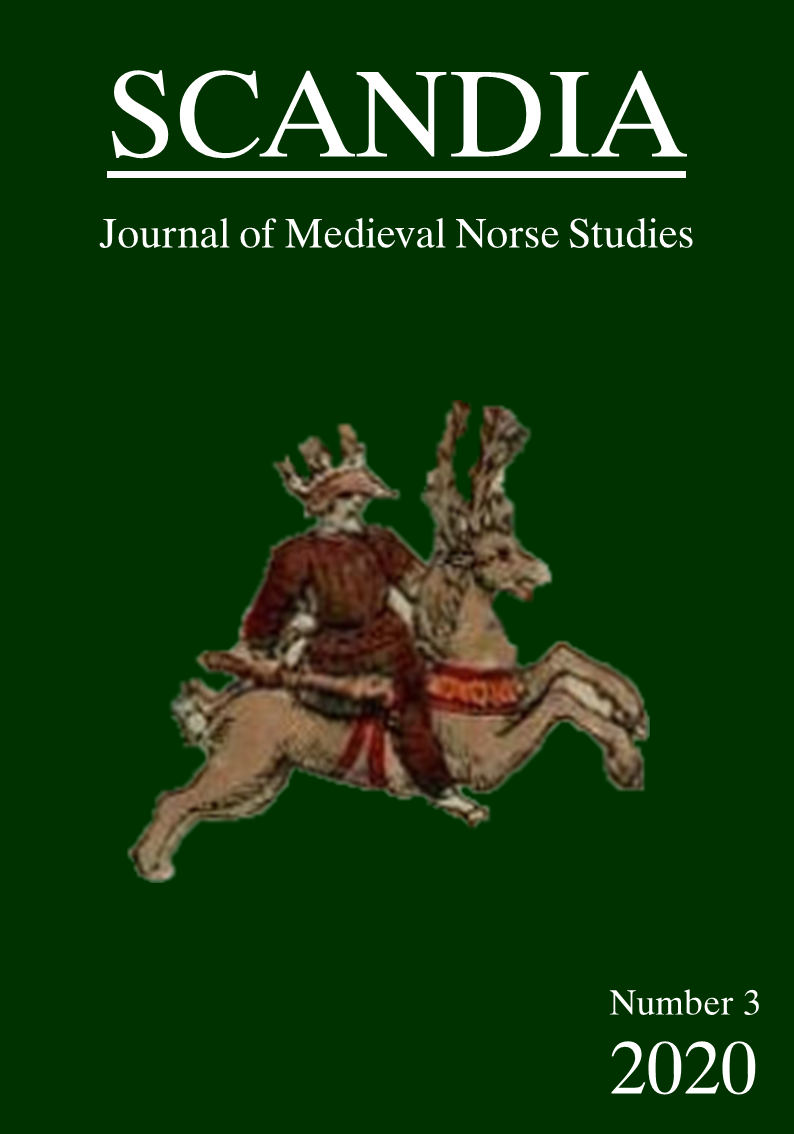BASI IDEOLOGICHE E COSTRUZIONI STORIOGRAFICHE NELLE IPOTESI MIGRAZIONISTICHE SULLA FINE DELLA GROENLANDIA NORRENA
Résumé
Riassunto: La fine della Groenlandia norrena avvenne alla fine del XV secolo, quando L’Insediamento Orientale rimase spopolato. La spiegazione più comunemente accettata al momento è l’emigrazione verso l’Islanda e/o la Norvegia. Tuttavia, non c’è nessuna prova di traversate oceaniche verso oriente allo scopo di stabilirsi in queste terre. Inoltre, la mancanza di documenti su trasferimenti di predi a dei nuovi arrivati, i disagi cui costoro sarebbero andati incontro nella società islandese e norvegese basso medievale, l’attaccamento alla loro terra e le incertezze di un futuro altrove, e la spedizione in Groenlandia progettata dall’arcivescovo di Nidaros Erik Valkendork, fra il 1514 e il 1516, lasciano intendere come questo esito sicuramente non ci sia mai stato. In questo articolo si tenta di evidenziare il carattere ideologico di queste teorie, connesso all’attuale clima culturale, e il modo in cui una aprioristica visione positiva delle migrazioni viene usata non solo per spiegare in modo rassicurante il mistero sulla fine della comunità norrena della Groenlandia, ma anche per confutare qualsiasi considerazione dalla quale possono emergere effetti esiziali delle migrazioni. Le teorie migrazionistiche che si rivolgono all’America settentrionale sono fondate su un lavoro più scrupoloso sulle fonti storiche, ma non offrono migliori possibilità esplicative, a differenza invece dell’ipotesi del collasso sociale dovuto ad una progressiva dinamica demografica negativa.
Parole Chiave: collasso; Groenlandia; ideologia; migrazione; spopolamento.
Abstract: The demise of Norse Greenland occurred at the end of XV century, when the Eastern Settlement remained depopulated. The most commonly accepted explanation at present is the immigration to Iceland and/or Norway. However, there is no evidence of any eastward oceanic crossing to settle in those lands. Moreover, the lack of records regarding land transfers to outsiders, the hardships that they were expected to face in the Icelandic and Norwegian Late Medieval societies, the attachment to their land and the uncertainties about their future abroad, and the expedition to Greenland planned by Archibishop Erik Valkendorf of Nidaros, in 1514-1516, definitely indicate that this exodus never really happened. This article aims to show the ideological essence of these theories, related to the current cultural climate, and the way an a priori positive view of migrations is used not only to explain reassuringly the mystery about the end of the Greenland Norse colony, but also to refute any consideration from which deadly effects of migrations could come to light. The migrationist theories about North America are based on a more meticulous study of historical sources, but they do not offer better explicative chances, as the hypothesis of a collapse, due to a negative population dynamics, can do.
Key words: collapse, Greenland, ideology; migration; depopulament.
Téléchargements
Téléchargements
Publiée
Numéro
Rubrique
Licence
The author (s) of the original submitted undertake to comply with the following:
- All authors are publicly responsible for it.
- The authors claim that this original is their own and that they assume full responsibility to third parties, whether moral or patrimonial, by reason of its content, stating that the work does not infringe any intellectual property rights of third parties.
- The author (s) agree to the copyrights of the original to Scandia Journal, to which they grant permission for its reproduction, editing and online publication.
- The author (s) grant their copyright of their original to the Scandia Journal, licensed under the Creative Commons Attribution License, which allows the sharing of this work with the acknowledgment of their authorship.
- The author (s) have permission and are encouraged to cite and distribute their original.


